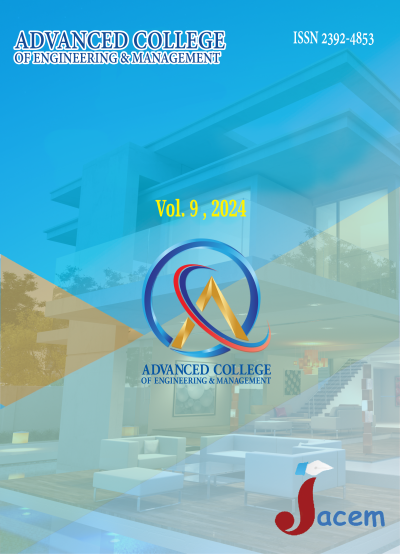Green Logistics in E-commerce Industry: A Case Study on Daraz Nepal Pvt. Ltd.
DOI:
https://doi.org/10.3126/jacem.v9i1.71446Keywords:
Daraz, e-commerce, ICEsAbstract
This thesis explores the important role of last-mile delivery in the logistics sector, with a particular focus on the e-commerce sector. Daraz, a leader in e-commerce, currently relies on two- and four-wheeled gasoline-powered vehicles for last-mile deliveries, using a hub-based model spread across nine locations across the Kathmandu valley. In line with its commitment to environmental sustainability, Daraz aims to convert its entire fleet of gasoline-powered vehicles to electric alternatives, thereby contributing to the global effort to reduce the carbon emissions. Our research yields compelling findings that highlight the significant benefits of transitioning from internal combustion engines (ICEs) to electric vehicles in the context of e-commerce last-mile delivery. These results highlight the financial and ecological benefits of adopting electric mobility in the logistics sector. We recommend that organizations involved in last-mile delivery, especially in e-commerce, carefully consider the use of electric vehicles as a financially prudent and environmentally friendly option. This conversion promises significant fuel savings, significantly improved fuel efficiency and an extremely short payback period of less than 5 years. In addition to these findings, our research also examines the transformative potential of energy consumption and emissions reduction in last-mile logistics. The energy consumption by EV is found to be less than 50% than that of petrol option. We reveal a stark disparity between petrol and electric vehicles, with petrol two- and four-wheelers showing significant energy consumption and emissions, especially in the area of carbon dioxide (CO2). In summary, our research makes a compelling case for a cleaner, more sustainable and more economically viable future in last-mile logistics through the adoption of electric vehicles and other innovations.
Downloads
Downloads
Published
How to Cite
Issue
Section
License
JACEM reserves the copyright for the published papers. Author will have right to use content of the published paper in part or in full for their own work.




